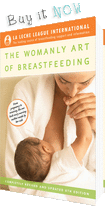Below is Caroline's letter published in today's newspaper....
Standing up to milk brands' machinery
I refer to the letter from Clara Shek, of the Council of Public Relations Firms of Hong Kong ("Baby milk marketing ban a blunt weapon that will hurt HK", March 16).
It was interesting to see yet another self-interested commercial group complain about the proposed Hong Kong Code of Marketing of Formula Milk.
Formula manufacturers are likely to spend much of their annual marketing budget of HK$1.6 billion to fight the proposal to ban all marketing activities on formula milk for children less than three years old. They are concerned about losing some of their substantial profits.
Despite their assertions that there is no evidence their marketing affects breastfeeding rates, recently published research by the University of Hong Kong shows that the rate has risen substantially in public hospitals since free formula samples were no longer provided. It also shows that the best predictor for short-duration or no breastfeeding is the early introduction of formula.
If the manufacturers, promoters and retailers of formula had provided "honest advertising content" and "legitimate marketing operations", there would be no need for the code. The World Health Organisation introduced the worldwide code in 1981 as a direct result of unscrupulous marketing activities by formula manufacturers, and these continue, albeit in a different form, today.
No baby over the age of 12 months needs formula but 77 per cent of four-year-olds in Hong Kong still drink it because advertising has convinced them it is required, even though culturally the Chinese consume few, if any, dairy products.
The Department of Health needs to address the underlying reasons for poor breastfeeding rates in Hong Kong - and there are many. But at least it's starting where it knows it will have the biggest impact.
It is hard for the government, non-profit and volunteer groups to counterbalance the claims of such a big industry which can - and will - spend money on advertising and numerous other forms of marketing, including to medical professionals, that help it to grow its market.
It is in the public interest that there be a level playing field of information about formula milk rather than the one-sided information that is available through the current so-called free market.
Caroline Carson, La Leche League Hong Kong
Standing up to milk brands' machinery
I refer to the letter from Clara Shek, of the Council of Public Relations Firms of Hong Kong ("Baby milk marketing ban a blunt weapon that will hurt HK", March 16).
It was interesting to see yet another self-interested commercial group complain about the proposed Hong Kong Code of Marketing of Formula Milk.
Formula manufacturers are likely to spend much of their annual marketing budget of HK$1.6 billion to fight the proposal to ban all marketing activities on formula milk for children less than three years old. They are concerned about losing some of their substantial profits.
Despite their assertions that there is no evidence their marketing affects breastfeeding rates, recently published research by the University of Hong Kong shows that the rate has risen substantially in public hospitals since free formula samples were no longer provided. It also shows that the best predictor for short-duration or no breastfeeding is the early introduction of formula.
If the manufacturers, promoters and retailers of formula had provided "honest advertising content" and "legitimate marketing operations", there would be no need for the code. The World Health Organisation introduced the worldwide code in 1981 as a direct result of unscrupulous marketing activities by formula manufacturers, and these continue, albeit in a different form, today.
No baby over the age of 12 months needs formula but 77 per cent of four-year-olds in Hong Kong still drink it because advertising has convinced them it is required, even though culturally the Chinese consume few, if any, dairy products.
The Department of Health needs to address the underlying reasons for poor breastfeeding rates in Hong Kong - and there are many. But at least it's starting where it knows it will have the biggest impact.
It is hard for the government, non-profit and volunteer groups to counterbalance the claims of such a big industry which can - and will - spend money on advertising and numerous other forms of marketing, including to medical professionals, that help it to grow its market.
It is in the public interest that there be a level playing field of information about formula milk rather than the one-sided information that is available through the current so-called free market.
Caroline Carson, La Leche League Hong Kong



 RSS Feed
RSS Feed